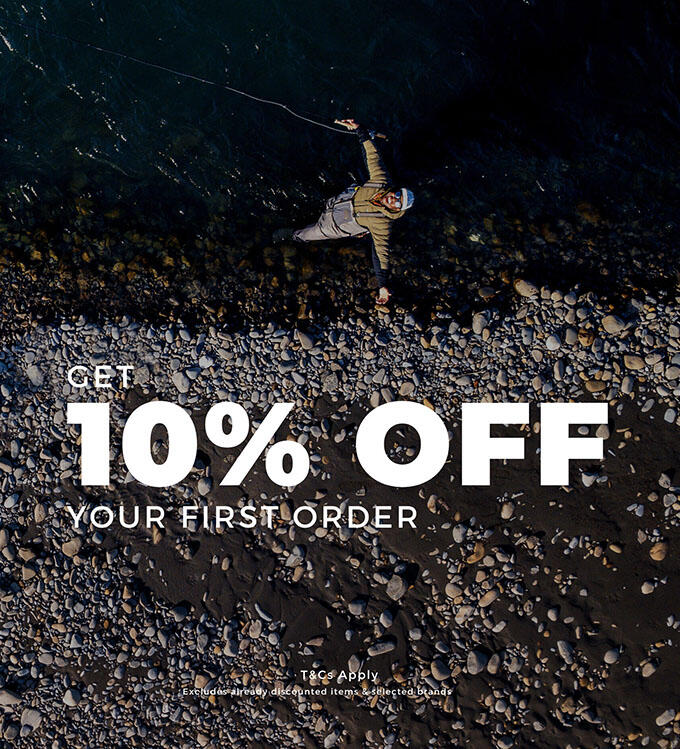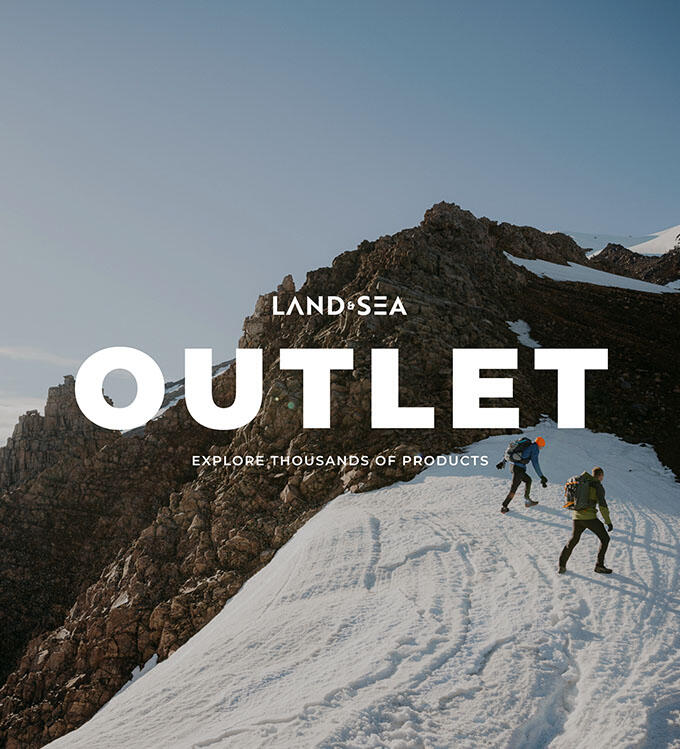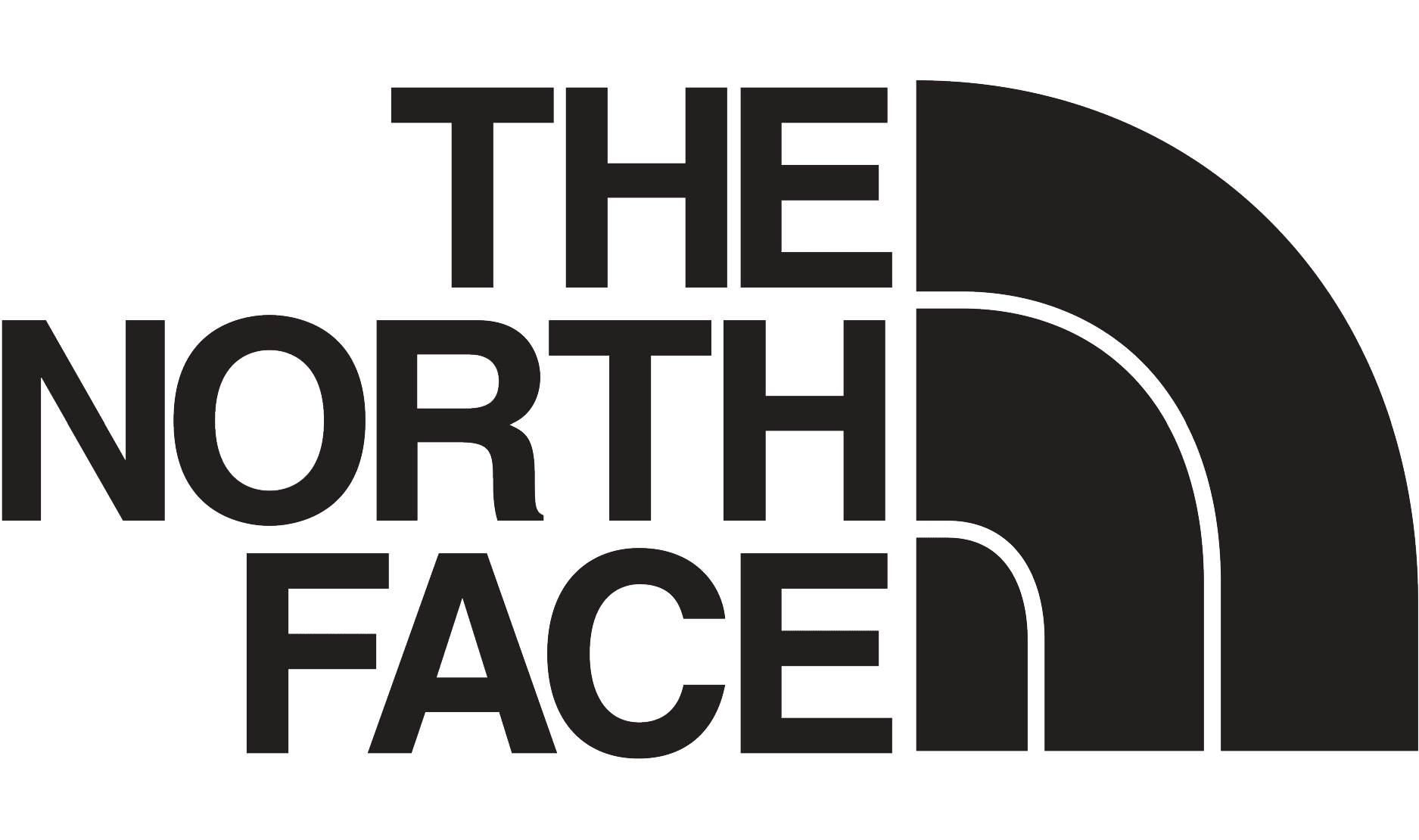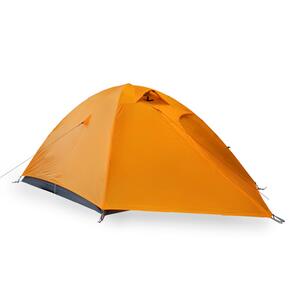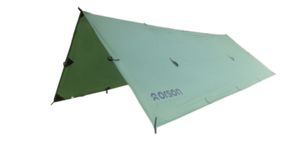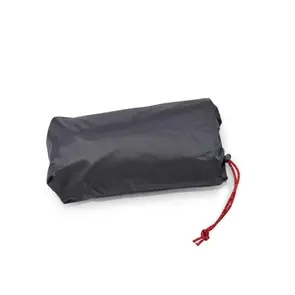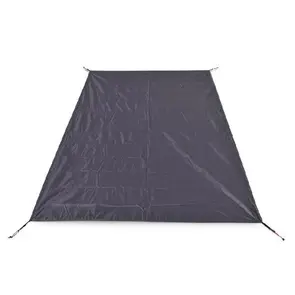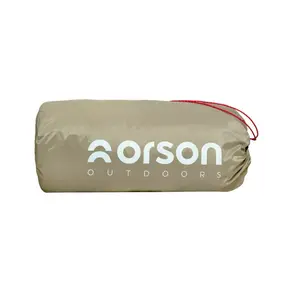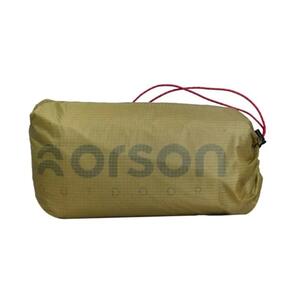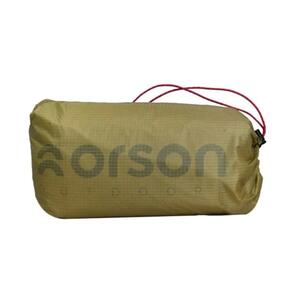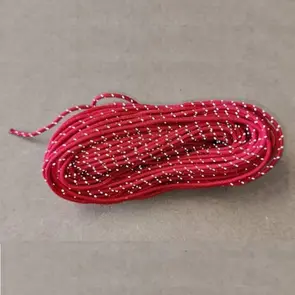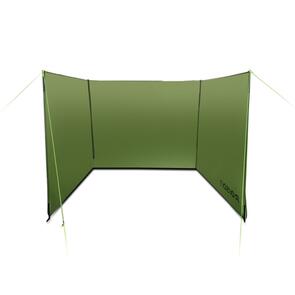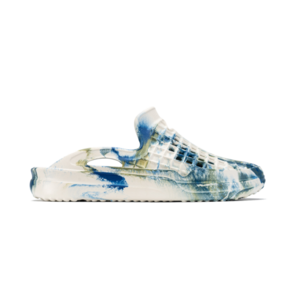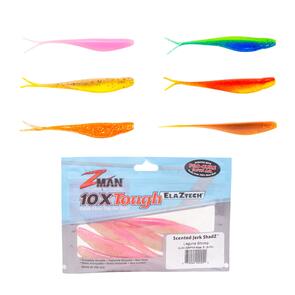Product Description
YOUR DUO'S RELIABLE SHELTER FOR HIKING ADVENTURES
Experience the legacy of the Orson Tracker 2 Lightweight 2 Person Hiking Tent, a tried and tested lightweight tent that has been a favorite among hunters and hikers since its debut in 2012. This compact and lightweight tent, designed for 1-2 people, combines reliability with portability, making it an ideal choice for your hiking, tramping, or hunting trips.
Orson Tracker 2 Lightweight 2 Person Hiking Tent Features
- With a history dating back to 2012, the Tracker 2 has proven its worth in various weather conditions, earning a reputation as a reliable performer.
- Weighing in at just 1.95kg (packed weight, everything included), this tent offers a cozy and roomy setup for 1-2 people. The compact design ensures easy portability, packing down to around 40cm x 15cm in diameter.
- The tent features a convenient front entry and vestibule, providing easy access and extra space for storing gear.
- The Ripstop Polyester PU3000mm fly and PU5000mm floor, equipped with taped seams, make the tent waterproof and durable, ensuring reliable performance in various conditions.
- The fully enclosed inner tent includes storage pockets, adding convenience to your camping experience.
- The tent is freestanding and easily pitched in a few minutes, thanks to the 8.5mm Aluminum poles and the pole-in-eyelet/grommet system.
- Air vents at the front and rear enhance airflow, providing a comfortable interior even in warm conditions.
- An optional footprint is available for added floor protection and multi-pitch options. It allows the outer fly to be set up on its own or in rain to keep the inner tent dry during pitching.
Orson Tracker 2 Lightweight 2 Person Hiking Tent Specifications
- Capacity: 1-2 people
- Fly: 68D 185T Ripstop Polyester, PU3000mm, taped seams
- Inner: 68D 185T breathable Polyester and fine mesh
- Floor: 68D 185T Polyester, PU5000mm, taped seams
- Poles: T7001 Aluminium 8.5mm poles
- Stakes: Aluminium Y stakes
- Fly Dimensions: 135cm width at head [105cm at foot] x 215cm + 65cm [vestibule] length x 100cm height
- Inner Dimensions: 130cm width at shoulder [100cm at foot] x 210cm length x 95cm height
- Packed Size: 40cm length x 15cm diameter
- Weight: 1.95kg
Videos
Facts
Q: How do I know what size hiking tent I need?
When choosing the size of your tent there are a few things you need to consider. Start with how many people will be sleeping in your tent. If weight & size are not major factors, then we recommend upsizing by 1. For example, if it’s you & one other then we would suggest a 3-person tent. If you are looking for the most compact solution, then stay true to the occupants within your tent.
Q: How heavy should a hiking tent be?
Ideally as light as possible however there are a few factors at play. As a general rule of thumb, the higher your budget the more compact your tent can be due to the use of higher-quality materials. Your weight will also be dependent on the size you choose. If you are travelling by foot or bike then our recommendation is to go as light & compact as you can afford.
Q: What makes a tent, a hiking tent?
Hiking tents are designed to be lightweight, durable & versatile for adventure purposes. Hiking tents generally vary between 1-person
& 4-person in size. Designed to provide maximum protection for the user with the ability to easily pack up & carry around with as little hassle as possible. Hiking tents are also designed to handle variable conditions from Wind & Snow to heat.
Q: What waterproof rating do I need in my hiking tent?
All hiking tents are rated with a ‘MM’ rating. This rating directly measures the water pressure the fabric can withstand. For example, a 2,000mm rating can endure 2,000mm (2 meters) of water baring down on the tent before it begins to leak. Hiking tents are generally rated between 800mm & 10,000mm – finding the right water rating is important when considering the conditions you intend to camp.
Q: Do I need a footprint for my hiking tent?
Footprints are highly recommended for most tents but most definitely for hiking tents. Footprints take up minimal extra room in your pack but add a vast array of benefits. Here are some of the key benefits. Reduction in condensation, extra warmth, greater durability, additional waterproofing & aiding set up by acting as a template.
Q: Do I need an all-season hiking tent for New Zealand conditions?
The most popular hiking tents in NZ tend to be 3-season or ‘all-season’ tents due to the variable conditions. 3 season tents are designed to deal with Summer, Autumn & Spring conditions. ‘All Season’ or 4 season tents ensure you are kept safe & dry during winter seasons. If you intend to camp during the cooler months it is our recommendation to look at an ‘all-season’ tent.
Q: How much do I need to spend when buying a hiking tent?
When choosing your ideal hiking tent, price is generally a factor to consider. As a general rule of thumb the more expensive your hiking tent the more lightweight & compact it will be without compromising its durability to the environment. For the majority, the amount of use your tent will get is a big factor in how much you spend. Our recommendation is to consider the conditions you intend to use your tent vs the packability & weight. For example, if you require an ‘all season’ hiking tent to fit into your hiking pack then be prepared to pay a little extra.
Q: What is the best shape of hiking tent?
Hiking tents come in many different shapes & styles. Much of this comes down to manufacturing design however the shape will also affect the packability of the tent itself. For example, more rounded, dome-like tents will generally have a larger pack down size & subsequently be slightly heavier. A streamlined design, often found in 1-person tents allows for manufacturers to keep weight & pack size to a minimum. Please keep in mind that the shape will directly affect the space inside the tent.
Q: Can a child sleep in a hiking tent?
The short answer is yes. We would suggest stepping up one size to allow for extra space. We would also suggest purchasing a footprint for your tent to make the sleeping conditions more comfortable for your child in the instance they are hiking with you.
Q: What tent is best for me if I get claustrophobic?
As above, our recommendation is generally to step up one size if & when possible. If you do happen to get claustrophobic, then this would be highly recommended. It may also be worth leaning towards a more dome-style tent for added internal space.

Expert Review
Our experts are currently reviewing this product & will be providing their review shortly.
